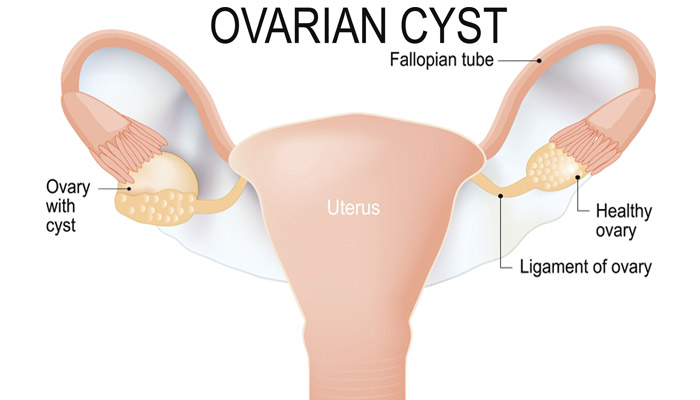
4 Signs of Ovarian Cysts
Ovarian cysts are a common occurrence in women and typically do not present symptoms. The most common type of ovarian cyst is referred to as a follicle cyst. During the menstrual cycle, an ovary releases an egg, which then grows inside a follicle found on the ovary. Typically, the follicle will burst and release the unfertilized egg. Sometimes though, the follicle does not burst, and a cyst is formed.
Symptoms
More often than not, the cyst will remain unnoticed and burst on its own within a few months. Some cysts do present symptoms and can be uncomfortable or even painful. The four most common symptoms of ovarian cysts are:
- Pelvic pain, either on the right or left side
- Pain during sex
- Lower backache or dull pain
- Bloating or feeling of fullness
If you suspect you may have an ovarian cyst, it is not a medical emergency. You will need to schedule an appointment with your OB/GYN to have an exam and possibly an ultrasound. Your doctor will then discuss size, placement, concerns, and possible treatment options if you are in pain.
Treatment
Oftentimes doctors take a “wait and see” approach to see if the cyst will go away on its own. You will have follow-up appointments to track size and changes in the cyst. If you are experiencing discomfort or pain, you may be prescribed hormonal contraceptives. The hormones will prevent additional cysts from forming but will not shrink existing cysts.
On occasion, ovarian cysts will be surgically removed if they are causing pain, continue to grow, or have had a long life. The surgery is typically done laparoscopically. The surgery involves making small incisions in the abdomen and is minimally invasive and recovery time is short. Typically, the patient can return home the same day or spend, at most, one night in the hospital.
Complications
Rarely, ovarian cysts can cause more dangerous health issues. Severe and sudden abdominal pain or abnormal bleeding can indicate a ruptured cyst or twisted ovary. If you find yourself experiencing these symptoms, you need to seek medical care right away. Ruptured cysts can lead to heavy blood loss, which requires immediate treatment.
Prognosis
Ovarian cysts, while sometimes painful and inconvenient, are typically harmless and resolve spontaneously. Treatment is minimally invasive and effective if needed. Millions of women are managing their ovarian cysts daily, so if you find yourself diagnosed with cysts, you have no cause for worry.
